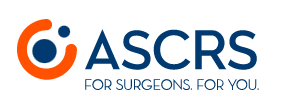What is a clinical trial?
Clinical trials involve individuals who volunteer to assist in finding solutions to specific health-related questions. Clinical trials are a scientific and regulated way to discover new medications and treatments and a means of enhancing health. A protocol guides clinical trials and outlines matters such as the types of patients involved, test schedules and procedures, the medication used, dosages, length of the study, and the expected research outcomes. Participants in clinical trials must agree to adhere to the protocol guidelines, while researchers and health professionals must abide by precise rules established by the FDA to ensure the safety of the patients involved.
Clinical trials are conducted for a variety of reasons including, but not limited to, determining the efficacy or safety of a new drug or device, studying different ways to use treatments so that they are either easier or more effective, or advancing medicine to treat a population that wasn’t previously tested or treated.
Why should you consider participating in a clinical trial?
In some cases, participants use clinical trials because no other treatments have worked for their disease, or they are unable to handle the side effects of standard treatments. Other times, they participate because they want the opportunity to contribute to medical advancements or to have access to newer treatments before they are available to the general public.
Whatever the reason, it is important to note that all clinical trials have guidelines or “eligibility criteria” outlining who can participate. These criteria are put in place for every clinical trial to ensure that participants meet the requirements based on age, sex, stage of disease, medical history, and other variables. These requirements help to reduce the variation within the study.
Clinical trial participants should represent the patients who will ultimately use these newer treatments, if they are approved. As such, the clinical trials conducted here at Fort Lauderdale Eye Institute through the FDA seek to ensure that all eligible patients are included in clinical trials to guarantee comprehensive outcomes.
If you are interested in more information on our clinical trials, please call Noel Pereda, Clinical Research Manager, at 954-635-2861, Nathalie Rodriguez, Research Patient Coordinator, at 954-635-2864, or Helen Aguilar, Unmasked Clinical Research Coordinator, at 954-635-2862.
You may also fill out our Clinical Trial Treatment: Request More Information contact form and we will contact you as soon as possible.
Current Protocols Enrolling or Soon to be Enrolling at our Practice
Protocol Number: BAROLO ( EYE-RES-103)
A randomized, double-masked, multicenter, 3-arm pivotal Phase 2/3 study to evaluate the efficacy and safety of intravitreal EYE103 compared with intravitreal Ranibizumab (0.5 mg) in participants with diabetic macular edema
Protocol Number: ANX007-GA-02 (ARCHER II)
Sponsor: Annexon, Inc.
A Phase 3, Multicenter, Randomized, Parallel-Group, Double-Masked, 2-Arm, Sham Controlled Study of the Efficacy, Safety, and Tolerability of ANX007 Administered by Intravitreal Injection in Patients with Geographic Atrophy (GA) Secondary to Age[1]Related Macular Degeneration (AMD)
Protocol Number: 4951-002 (KYOWA 002)
Sponsor: Kyowa Kirin Co., Ltd.
A Phase 2, Multicenter, Randomized, Double-Masked, Parallel-Group Study to Assess the Efficacy and Safety of KHK4951, a Vascular Endothelial Growth Factor Receptor Inhibitor, in Patients with Neovascular Age-Related Macular Degeneration
Protocol Number: 4951-003 (KYOWA 003)
Sponsor Name: Kyowa Kirin Co., Ltd.
A Phase 2, Multicenter, Randomized, Double-Masked, Parallel-Group Study to Assess the Efficacy and Safety of KHK4951, a Vascular Endothelial Growth Factor Receptor Inhibitor, in Patients with Diabetic Macular Edema.
Protocol Number EYP-1901-302 (LUCIA)
Sponsor: EyePoint Pharmaceuticals
A Phase 3, Multicenter, Prospective, Randomized, Double-Masked, Parallel-Group Study of EYP-1901, a Tyrosine Kinase Inhibitor (TKI), Compared to Aflibercept in Subjects with Wet AMD.
How are patients protected while participating in a clinical trial?
Patients are protected by the Food and Drug Administration (FDA), The National Institute of Health (NIH), and Independent Review Boards. These identities oversee all research to protect the rights and maintain the welfare of all study participants.
For more information, please visit the following websites:






